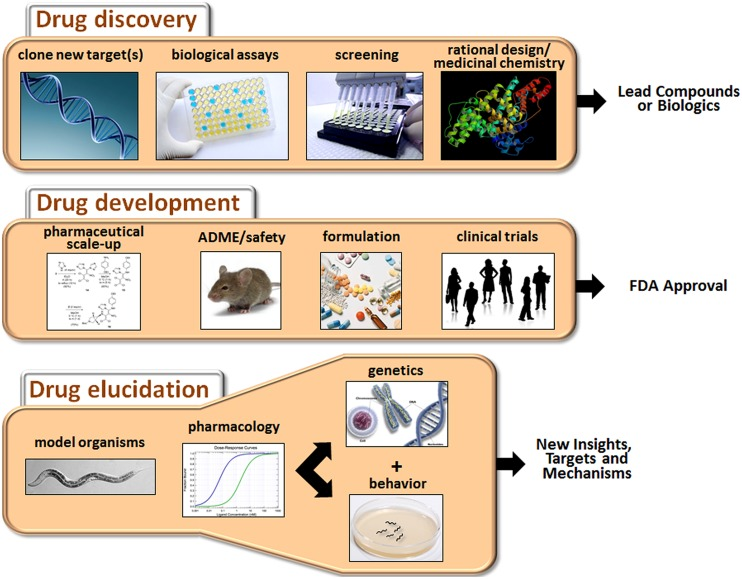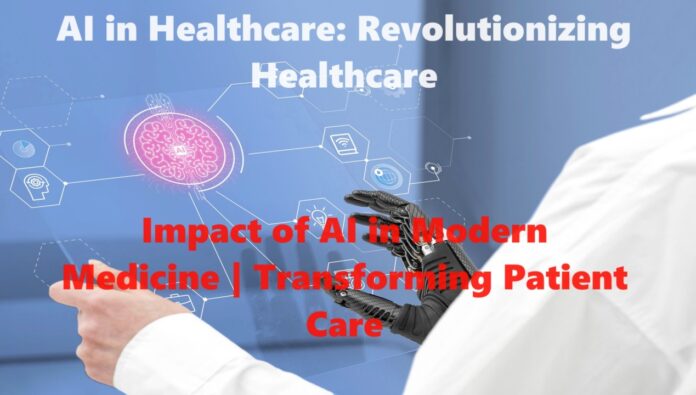Table of Contents
Introduction

In recent years, artificial intelligence (AI) has emerged as a transformative force in various industries, revolutionizing the way tasks are performed and solutions are developed. One area where AI is making significant strides is healthcare. With its ability to analyze vast amounts of data, identify patterns, and make predictions, AI is poised to revolutionize patient care, medical research, and healthcare management. In this article, we’ll explore the profound impact of AI on modern healthcare and the potential benefits and challenges it presents.
Enhanced Diagnostics and Imaging

One of the most promising applications of AI in healthcare is in diagnostics and medical imaging. AI-powered algorithms can analyze medical images such as X-rays, MRIs, and CT scans with remarkable accuracy, helping to detect abnormalities, tumors, and other conditions at an early stage. By automating the interpretation of medical images, AI can assist healthcare providers in making more accurate diagnoses and developing personalized treatment plans for patients.
Predictive Analytics and Disease Prevention

AI algorithms can analyze vast amounts of patient data, including medical records, genetic information, lifestyle factors, and environmental data, to identify patterns and predict the likelihood of developing certain diseases or conditions. By leveraging predictive analytics, healthcare providers can proactively intervene to prevent or manage chronic diseases such as diabetes, heart disease, and cancer. Early detection and intervention can lead to better health outcomes and reduced healthcare costs in the long run.
Personalized Treatment Plans

AI-driven technologies, such as machine learning algorithms, can analyze patient data to develop personalized treatment plans tailored to individual needs and preferences. By considering factors such as genetic predispositions, medical history, lifestyle factors, and treatment responses, AI can help healthcare providers optimize treatment outcomes and minimize adverse effects. Personalized medicine holds the promise of improving patient outcomes, reducing treatment costs, and enhancing overall quality of care.
Drug Discovery and Development

Conclusion :
Good health and well-being are essential aspects of our lives that contribute to our overall happiness and quality of life. Good health allows us to live our lives to the fullest, participate in activities we enjoy, and be there for the people we care about.
Modern healthcare has undergone significant transformations in recent years, driven by advancements in technology, changes in patient demographics, and evolving healthcare delivery models. With the rise of digital health solutions, such as telemedicine, wearable devices, and electronic health records, patients now have greater access to healthcare services and information than ever before.
These innovations not only improve patient outcomes and satisfaction but also enhance healthcare efficiency and cost-effectiveness. Additionally, the shift towards value-based care models prioritizes preventive care, chronic disease management, and patient-centered approaches, leading to better population health outcomes.
However, modern healthcare also faces challenges, including rising healthcare costs, disparities in access to care, and the need for robust cybersecurity measures to safeguard patient data. Despite these challenges, the ongoing evolution of modern healthcare promises to revolutionize patient care, improve health outcomes, and create a more equitable and sustainable healthcare system for all.
- Modern healthcare has undergone significant advancements, incorporating cutting-edge technology and innovative approaches to patient care.
- Technological breakthroughs, such as telemedicine and electronic health records, have revolutionized healthcare delivery, providing patients with greater access and convenience.
- Individualized healthcare has gained importance, with emphasis on personalized treatment plans and patient-centered approaches to care management.
- Accessibility and equity in healthcare provision have become focal points, with efforts to ensure that all individuals have access to essential and quality healthcare services.
- Informational health literacy has empowered patients to take control of their health, with a growing emphasis on health education and preventive care.
- Governments and healthcare institutions are prioritizing the provision of basic healthcare services, aiming to achieve universal health coverage and improve population health outcomes.
- Quality improvement initiatives in modern healthcare focus on allocation, efficiency, and standards to ensure optimal patient outcomes and satisfaction.
- Principles of public health, including social equality and justice, are integral to modern healthcare, aiming to address disparities and promote health equity.
- By adhering to the latest standards of care, modern healthcare endeavors to advance the trajectory of health improvement and enhance the overall well-being of communities.
- With a commitment to continuous improvement and the provision of comprehensive healthcare services, the focus remains on achieving better health outcomes and fostering a healthier society.
For More Information Please Visit These Websites Foxbusinessmarket and Vecteezy

